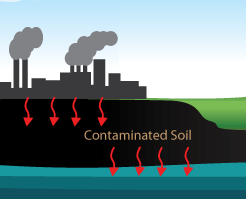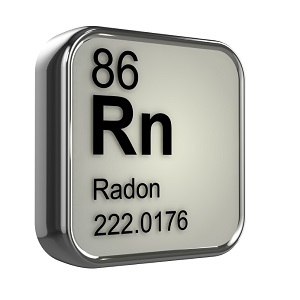nc
Why do I need to worry about vapor intrusion?
Why do I need to worry about vapor intrusion? Vapor intrusion results from chemical vapors emanating from contaminated soil or groundwater that impacts the indoor air of a building. The chemical vapors can seep into openings in cracked foundations, basements, or sewer lines or, depending on the identified compounds, can simply migrate through the floor…
Common Misconceptions about Asbestos
Whether you are planning on renovating an older building or demolishing a structure to make way for something new, it is important to consider the presence of asbestos. Asbestos exposure is a severe health risk that can potentially lead to conditions like mesothelioma, lung cancer and other types of asbestos-related cancer. Below are just a…
Immediate Funding Available for Detroit Projects
The City of Detroit has funding from the US EPA that needs to be used quickly for environmental assessment activities (Phase I ESAs, Phase II ESAs, or Baseline Environmental Assessments) on projects. If the money is not committed for projects, the EPA will recapture the funding. The deadline to submit an application is Wednesday, October…
New Hurdles to Closing an SBA Loan on Contaminated Property in Michigan
Closing a US Small Business Administration (SBA) loan on a contaminated site just became more complicated in Michigan. Recent changes made by the Michigan Department of Environmental Quality (MDEQ) in late 2015 are requiring deeper investigation into potential Vapor Intrusion issues as well as limiting the use of the Documentation of Due Care Compliance report…
Do Drones Have a Place in the Phase I ESA Process?
Google the phrase, ‘use of drones in engineering’ and a plethora of listings will populate your screen. From performing cell tower inspections to farming to delivering packages, drone use in business is increasing daily and seems limited only by one’s imagination. At some point, you have probably pondered the use of drones (Also known as…
Experts Corner: Time is Up New Jersey. Get Your Remedial Action Permit Now!
If you’re a property owner in New Jersey with a Conditional No Further Action Letter, you may be affected by recent regulatory changes. Last month, PM Environmental reached out to affected property owners to offer assistance with the following changes: New Jersey Department of Environmental Protection (NJDEP) restructured the monitoring of all Declarations of Environmental…
Don’t Let the Detroit Lead Ordinance Surprise You
If you own rental properties in Detroit built before 1978, there is a good chance that you’re out of compliance with the city’s lead ordinance. According to Detroit Health Department and the Census, almost 75 percent of the city’s housing was built before 1955 and, therefore, likely contains paint with a high proportion of lead….
Do you always need a Radon Inspection Report for HUD multifamily project applications?
Radon detection and mitigation is a priority for the U.S. Department of Housing and Urban Development (HUD). Since 2013, HUD’s Office of Multifamily Housing policy has required radon testing and, if applicable, mitigation for most new FHA-insured construction, conversion and substantial rehabilitation projects, as well as most FHA-insured refinance transactions. HUD requires a Radon Inspection…
Experts Corner: What Can I Use from Past Environmental Reports?
The more you know about the past, the better prepared you are for the future. Theodore Roosevelt wasn’t particularly referring to Environmental Due Diligence, but his wisdom holds true when it comes to performing high-quality environmental work. Reviewing prior environmental reports is crucial in the due diligence process since they provide valuable insight on a…
Experts Corner: Petroleum Marketers and the Ticking Clock
The clock keeps ticking for petroleum marketers since the EPA’s revisions to the Underground Storage Tank Regulation (40 CFR Parts 280 and 281) in July of 2015 and the liability shift policy by U.S. credit card issuers in October of 2015. The EPA’s revised regulations on the inspection, maintenance, and monitoring of Underground Storage Tanks…










